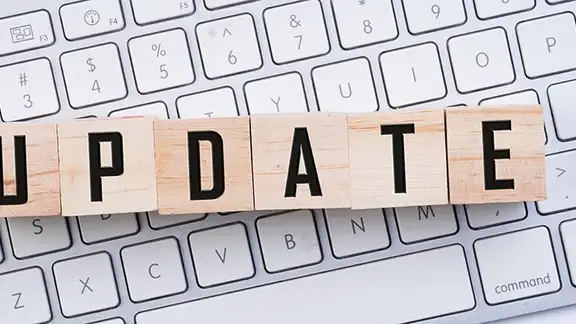5 things you should know if you were suddenly unemployed this year.
19 mars 2021

Nearly two million Canadians lost their jobs in 2020, many because of closures due to COVID-19. Dealing with the loss of work can be stressful, and your tax obligations might be last thing on your mind. We’re here to help you get through this year’s changes with 5 things you should know if you were suddenly unemployed.
1. It’s important to file your return.
If you only have a small amount of income to report this year (or even none at all), you should still file a return. Every Canadian resident is entitled to claim the basic personal amount, a tax credit which reduces the amount of tax you owe. The maximum basic personal amount you can claim for 2020 is $13,229. This means if you’re reporting less than $13,229 in income, you won’t owe federal taxes this year! You can also claim a corresponding provincial basic personal amount – the amount you’ll receive for this tax credit depends on which province or territory you live in.
The government also needs the information from your return to confirm your eligibility for federal benefits like the Canada Child Benefit (CCB) and the GST/HST Credit, as well as provincial benefits like the BC Recovery Benefit. If you don’t file a return, you’ll miss out on these benefits.
2. Many COVID-19 emergency benefits count as taxable income.
Many Canadians relied on financial support from the Canada Emergency Response Benefit (CERB) and other COVID-19 emergency benefits when they were faced with sudden unemployment in 2020.
Some federal emergency benefits, like CERB and the Canada Emergency Student Benefit (CESB), are included in your income for 2020, meaning your total income might be higher (or lower) than last year. This means you could find yourself in a different tax bracket and you could have to pay more (or less) tax this year than you did last year.
The good news is if you received federal and/or provincial COVID-19 emergency benefits and your net income is less than $75,000, the CRA and Revenu Québec won’t charge interest on the tax you owe from your 2020 return until April 30, 2022.
To learn more about how federal and provincial COVID-19 relief measures might affect your taxes this year, and for a list of federal and provincial emergency benefits that are tax-free, check out this blog.
3. You might have to pay tax on your Employment Insurance (EI) benefits.
If you lost your job through no fault of your own (meaning you didn’t quit), you might have applied for Employment Insurance (EI) benefits as temporary financial support while you’re in between jobs.
Many Canadians also received EI benefits once their CERB payments ended. To make it easier for more Canadians to access their benefits, the federal government made temporary changes to the EI program which are in effect until September 25, 2021.
EI benefits are taxable. But don’t worry - you’ll receive a T4E slip, or a T4E(Q) slip if you’re a resident of Québec, showing the employment insurance you received or repaid this year, and that will help you figure out how much tax you owe.
Keep in mind, EI benefits are also subject to a clawback, meaning that if your net income is more than $67,750, you’ll need to repay a portion of your EI benefits to the CRA. This only applies to regular benefits (including fishing benefits). If you received special benefits, these won’t count towards your total income and you won’t need to repay any of the amounts you were given. Special EI benefits include:
- Maternity and parental benefits;
- Sickness benefits; and
- Family caregiver benefits (for children and adults).
4. You can still claim the cost of your childcare expenses.
Normally, you can’t claim childcare expenses unless you paid them in order to work or go to school. This means that you can’t usually claim these costs when you’re unemployed.
However, as a temporary measure for 2020 and 2021 returns only, this requirement is waived if you received EI benefits or COVID-19 relief benefits. This means that if you were unemployed but received EI benefits or COVID-19 relief benefits, you can claim your childcare expenses on your 2020 and 2021 returns. Since your EI benefits and/or COVID-19 relief benefits are also considered earned income, the amount you received will determine how much you can claim for your childcare expenses.
You’ll claim your childcare expenses on the T778 form, or if you’re a resident of Québec, on Schedule C.
5. You’ll need to decide when to receive your pension.
If you were the benefit of a Registered Pension Plan (RPP) when you lost your job, you can choose when to start receiving your benefits:
- You can wait until you’re the regular retirement age (usually 65 years old);
- You can transfer the value of your plan to a Locked-in Retirement Plan (LIRA), an investment account for your pension funds, but you can only use these amounts once you’re retirement age (keep in mind, if the amount you contribute to your LIRA is over your RRSP deduction limit, the excess amount will be reported as income in box 18 of your T4A slip); or
- If you find a new job, you might be able to transfer your benefits to the pension plan offered by your new employer.
You might have also received a lump-sum payment from your previous employer as severance pay, compensation for loss of employment, and/or unused sick leave. These amounts are usually taxable as a retirement allowance. This means you’ll owe the following percentage in taxes on your payment:
- 10% if you received less than $5000;
- 20% if you received between $5001 and $15,000; or
- 30% if you received more than $15,000.
If you received a retirement allowance, you’ll find this amount in box 66 of your T4 slip.
Have questions about your tax situation? Ready to file, but not sure where to start? Get help from the largest network of reliable Tax Experts by choosing one of four convenient ways to file: File in an Office, Drop-off at an Office, Remote Tax Expert, or Do It Yourself Tax Software.



